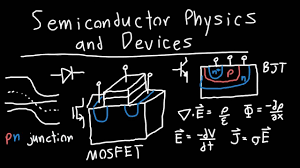EE Minor
The Electrical and Computer Engineering Department offers a minor in Electrical Engineering, a perfect fit for many science and engineering majors. The minor requires six (6) courses plus accompanying labs. This minor can be earned with little additional coursework for Material Science Engineering, Mechanical Engineering, Physics or Computer Science majors if planned in advance.
For example, a BS in Computer Science already requires students to take two ECE courses and associated labs, ECE 230 Digital Systems and ECE 330 Microprocessors, which can be counted towards the ECE minor. A CS major would then need to take just four ECE courses in order to earn an ECE minor.
Learn More
Certificate Options
Biomedical Instrumentation

This certificate is designed for students who want to combine their passion for engineering with healthcare. Coursework provides practical knowledge, bridging the gap between electrical and biomedical engineering. Students will learn fundamental engineering concepts and use them to design, build, and evaluate electrical systems used in medicine and research. We explore sensors (cochlear implants, pacemakers), signal processing (EEG, EMG, brain stimulation), and image processing (MRI, CT, x-ray) in the context of biomedical engineering. This is an excellent choice for students seeking to acquire the skills necessary for a career in the intersection of medicine and engineering.
Certificate in Biomedical Instrumentation Program Requirements
Integrated Circuit Design
This certificate is for students to learn the fundamentals of integrated circuit (IC) design. IC design is the process of developing architectural solutions to meet requirements within the constraints of semiconductor technology. Students will learn to simulate, optimize, verify, and implement their design with industry-standard computer-aided design (CAD) tools. This certificate for IC design covers both digital design (FPGAs, memories, microprocessors) and analog design (op-amps, filters, sensor interfaces).
Certificate in Integrated Circuit Design Program Requirements
Security of Cyber-Physical Systems

This series of certificates related to the security of cyber-physical systems are offered by the Electrical and Computer Engineering Department. Most STEM majors can add these credentials to their learning portfolio and graduate with the necessary “cyber awareness” to manage real-world challenges. The curriculum includes a variety of topics, including cryptography, industrial controls, smart grids, vehicle controller area networks (CAN), hacking, threat modeling, and more.
Semiconductor Device Physics
Understanding semiconductor device physics is important for jobs in many different companies, whether specializing in memory, logic, optoelectronic, or other types of devices and circuits. It is also relevant for undergraduate students in ECE, MSE, or Physics who may want to continue their education in graduate school.

Certificate in Device Physics Program Requirements
Semiconductor Processing
This certificate is specifically geared toward students who want to understand semiconductor processing on a fundamental level. The focus is not on manufacturing, but rather to bolster student knowledge of the individual unit processes that make up manufacturing flow. These include technical topics such as cleanroom safety and infrastructure, wet chemistry, photolithography, physical deposition, plasma deposition and etching, and others. Obtaining this certificate will demonstrate to prospective employers a student’s understanding of semiconductor fabrication methods.
Certificate in Semiconductor Processing Program Requirements